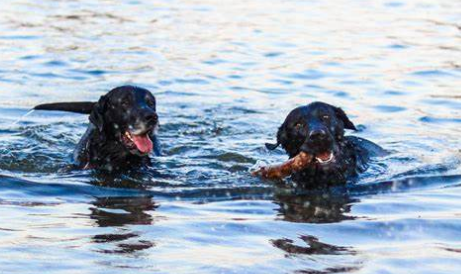The Fundamentals of Raising a Dog
Understanding Dog Ownership
Responsibilities of a Dog Owner
Raising a dog requires commitment, patience, and understanding. Owners must provide for their dog’s physical and emotional needs, including food, shelter, and companionship. A dog is a lifelong companion, often requiring over a decade of care.
The Emotional and Financial Commitment
Owning a dog is both rewarding and challenging. Financially, it includes expenses like food, grooming, and vet visits. Emotionally, it demands time, affection, and attention.
Choosing the Right Dog
Factors to Consider
Consider your lifestyle, living space, and energy levels when choosing a dog. Some breeds thrive in apartments, while others need large yards and plenty of exercise.
Adopting vs. Buying a Dog
Adopting from a shelter often saves a life and costs less than buying from a breeder. However, both options have their merits, depending on your preferences and needs.
Preparing Your Home for a Dog
Creating a Safe Environment
Dog-Proofing Your Home
Remove hazards like toxic plants, electrical cords, and small objects. Secure cabinets containing cleaning supplies or medications.
Essential Supplies
Prepare essentials like a bed, food and water bowls, a leash, toys, and grooming tools before bringing your dog home.
Introducing the Dog to Your Home
First Day Tips
Keep the environment calm and allow your dog to explore at their own pace. Show them their designated sleeping and eating areas.
Helping Your Dog Adjust
Patience is key. Establish a routine to help your dog feel secure and comfortable.
Nutrition and Feeding
Understanding Your Dog’s Dietary Needs
Puppy vs. Adult Diets
Puppies need nutrient-rich diets to support growth, while adult dogs require balanced maintenance diets to sustain their health.
Choosing the Right Dog Food
Consult your vet to select high-quality food tailored to your dog’s age, breed, and health requirements.
Feeding Schedule and Portion Control
How Often to Feed Your Dog
Puppies typically eat three to four meals a day, while adult dogs usually require two meals. Stick to a consistent schedule.
Avoiding Overfeeding
Measure portions carefully to prevent obesity, a common issue among dogs.

Training and Socialization
Basic Training Techniques
Positive Reinforcement
Reward good behavior with treats and praise to encourage repetition.
Crate Training Basics
Crates provide a safe space for your dog and aid in house training when used appropriately.
Socializing Your Dog
Importance of Early Socialization
Expose your dog to various people, places, and experiences during their early months to build confidence and reduce fear.
Introducing Your Dog to Other Animals
Supervise initial interactions with other pets to ensure a smooth introduction.
Grooming and Hygiene
Grooming Basics
Brushing and Bathing
Regular brushing keeps the coat healthy and reduces shedding. Bathing frequency depends on your dog’s breed and lifestyle.
Nail and Dental Care
Trim nails monthly to prevent overgrowth. Brush your dog’s teeth regularly to maintain oral health.
Seasonal Grooming Needs
Preparing for Winter
Provide extra warmth with coats or sweaters for short-haired breeds during cold months.
Handling Shedding in Summer
Frequent brushing during shedding seasons minimizes loose fur and keeps your dog comfortable.
Health and Wellness
Vaccinations and Preventive Care
Core Vaccines
Vaccinate against rabies, distemper, and parvovirus to protect your dog’s health.
Flea and Tick Prevention
Use preventive treatments year-round to avoid infestations and associated diseases.
Recognizing Illness
Common Symptoms to Watch For
Be alert for signs like lethargy, loss of appetite, or changes in behavior, which may indicate health issues.
When to Visit the Vet
If symptoms persist or worsen, seek veterinary care promptly.
Exercise and Activities
Daily Exercise Needs
Walks and Playtime
Regular walks and interactive play sessions are essential for your dog’s physical and mental well-being.
Mental Stimulation Activities
Puzzle toys and training exercises keep your dog’s mind sharp and engaged.
Bonding Through Activities
Training Classes
Participate in group classes to strengthen your bond and improve your dog’s social skills.
Fun Games to Play
Games like fetch, tug-of-war, or hide-and-seek provide entertainment and reinforce your connection.
Conclusion
Raising a dog is a fulfilling journey that requires dedication and understanding. By providing proper care, training, and love, you can build a rewarding relationship with your furry companion. Always prioritize their health and happiness, and they’ll return the favor with unwavering loyalty and affection.

